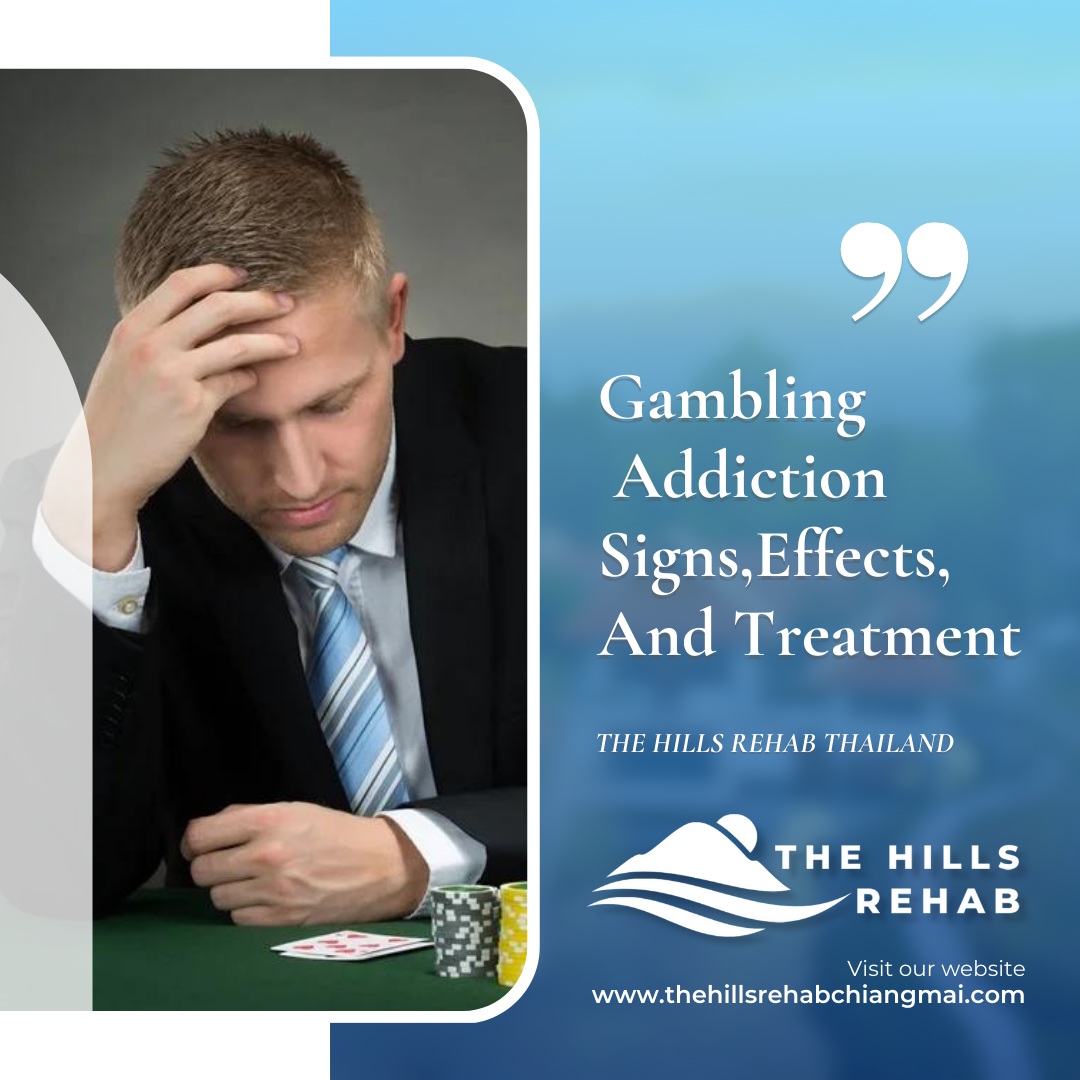
Gambling Addiction Treatment Thailand : The Hills Rehab Thailand is a facility that offers comprehensive treatment for various types of addiction, including gambling addiction. Here’s an overview of what you can expect regarding gambling addiction treatment at The Hills Rehab
Gambling addiction, also known as compulsive gambling or gambling disorder, is characterized by an uncontrollable urge to gamble despite negative consequences. Here are some common signs
Preoccupation with Gambling:
Inability to Stop:
Tolerance:
Chasing Losses:
Lying:
Risking Relationships and Opportunities:
Borrowing Money:
Emotional Distress:
Gambling addiction can have severe and wide-ranging consequences, including:
Financial Problems:
Mental Health Issues:
Physical Health Problems:
Relationship Strain:
Legal Issues:
Professional and Academic Impact:
For more detailed information or to inquire about specific programs, it’s best to contact The Hills Rehab directly or visit their official website.
Assessment and Evaluation
Therapeutic Interventions
Holistic Treatments
Education and Skills Training
Aftercare and Support
Effective treatment for gambling addiction often involves a combination of therapeutic approaches, support systems, and lifestyle changes:
Therapy and Counseling:
Medication:
Support Groups:
Education and Skills Training:
Holistic and Complementary Therapies:
Residential Treatment Programs:
Aftercare and Continued Support:
Recognizing the signs of gambling addiction early and seeking comprehensive treatment can help individuals regain control over their lives. Combining professional therapy, support systems, and lifestyle changes provides a robust approach to overcoming gambling addiction and building a healthier future.
Are you in need of assistance on your journey to recovery? Contact us. We are here to help. At our reputable rehab center, we offer a complimentary consultation to provide guidance and support tailored to your specific needs.
"*" indicates required fields
TH:
USA/CAN:
Thailand :
UK:
AUS:
Whatsapp: